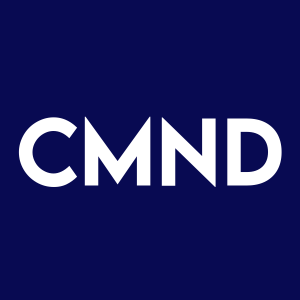Clearmind Medicine to Pioneer Psychedelic Clinical Trials for Alcohol Use Disorder with Ivy League Universities
- Clearmind Medicine Inc. is expanding its clinical trial to include Johns Hopkins University School of Medicine, a prestigious medical site, indicating growing interest and support for the potential of psychedelic drugs in treating neuropsychiatric conditions.
- None.
Insights
Analyzing...
Company entered a Clinical Trial Agreement with Johns Hopkins University School of Medicine and Yale University to conduct its first in-human clinical trial
Tel Aviv, Israel / Vancouver, Canada, Nov. 09, 2023 (GLOBE NEWSWIRE) -- Clearmind Medicine Inc. is pleased to announce that the company has entered into a Clinical Trial Agreement with Johns Hopkins University School of Medicine, to conduct its Phase I/IIa clinical trial of its proprietary MEAI-based CMND-100 as a potential treatment for Alcohol Use Disorder (AUD). The CM-CMND-001 clinical trial is a multinational, multi-center, single- and multiple-dose tolerability, safety and pharmacokinetic study in healthy volunteers and AUD subjects.
Clearmind’s flagship treatment is focused on AUD, which is an extremely common and devastating condition. The addiction varies from mild to acute and describes a person’s inability to control their alcohol consumption, despite negative health, social and occupational consequences. In the clinical trial, oral capsules will be administered once daily for ten consecutive days. The patients will report their drinking patterns and craving for alcohol (and cigarettes) during the clinical trial period. Patients will also be monitored for their depression symptoms.
Johns Hopkins University School of Medicine is the second US-based medical site to join the Company’s clinical trial. The first US-based site was Yale School of Medicine’s Department of Psychiatry.
The potential of psychedelic drugs to treat various neuropsychiatric indications is currently being explored in multiple human clinical trials. In Clearmind’s phase I/IIa trial, CM-CMND-001, the primary endpoint of the clinical trial is to find the tolerable dose and characterize the safety and pharmacokinetics/pharmacodynamics (PK/PD) of single and repeated doses of CMND-100 in healthy subjects and those with AUD. The secondary endpoint is to evaluate the efficacy of CMND-100 in reduction of drinking patterns and cravings, in individuals with moderate-to-severe AUD. Depression symptoms will also be evaluated as an exploratory endpoint.
About Clearmind Medicine Inc.
Clearmind is a psychedelic pharmaceutical biotech company focused on the discovery and development of novel psychedelic-derived therapeutics to solve widespread and underserved health problems, including alcohol use disorder. Its primary objective is to research and develop psychedelic-based compounds and attempt to commercialize them as regulated medicines, foods or supplements.
The Company’s intellectual portfolio currently consists of fourteen patent families. The Company intends to seek additional patents for its compounds whenever warranted and will remain opportunistic regarding the acquisition of additional intellectual property to build its portfolio.
Shares of Clearmind are listed for trading on Nasdaq and the Canadian Securities Exchange under the symbol "CMND" and the Frankfurt Stock Exchange under the symbol “CWY.”
For further information visit: https://www.clearmindmedicine.com or contact:
Investor Relations
invest@clearmindmedicine.com
Telephone: (604) 260-1566
US: CMND@crescendo-ir.com
General Inquiries
Info@Clearmindmedicine.com
www.Clearmindmedicine.com
Forward-Looking Statements:
This press release contains “forward-looking statements” within the meaning of the Private Securities Litigation Reform Act and other securities laws. Words such as “expects,” “anticipates,” “intends,” “plans,” “believes,” “seeks,” “estimates” and similar expressions or variations of such words are intended to identify forward-looking statements. For example, the Company is using forward-looking statements when it discusses of its proprietary MEAI-based CMND-100 as a potential treatment for Alcohol Use Disorder and the potential of psychedelic drugs to treat various neuropsychiatric indications. Forward-looking statements are not historical facts, and are based upon management’s current expectations, beliefs and projections, many of which, by their nature, are inherently uncertain. Such expectations, beliefs and projections are expressed in good faith. However, there can be no assurance that management’s expectations, beliefs and projections will be achieved, and actual results may differ materially from what is expressed in or indicated by the forward-looking statements. Forward-looking statements are subject to risks and uncertainties that could cause actual performance or results to differ materially from those expressed in the forward-looking statements. For a more detailed description of the risks and uncertainties affecting the Company, reference is made to the Company’s reports filed from time to time with the Securities and Exchange Commission (“SEC”), including, but not limited to, the risks detailed in the Company’s annual report on Form 20-F filed with the SEC on February 6, 2023. Forward-looking statements speak only as of the date the statements are made. The Company assumes no obligation to update forward-looking statements to reflect actual results, subsequent events or circumstances, changes in assumptions or changes in other factors affecting forward-looking information except to the extent required by applicable securities laws. If the Company does update one or more forward-looking statements, no inference should be drawn that the Company will make additional updates with respect thereto or with respect to other forward-looking statements. References and links to websites have been provided as a convenience, and the information contained on such websites is not incorporated by reference into this press release. Clearmind is not responsible for the contents of third-party websites.








